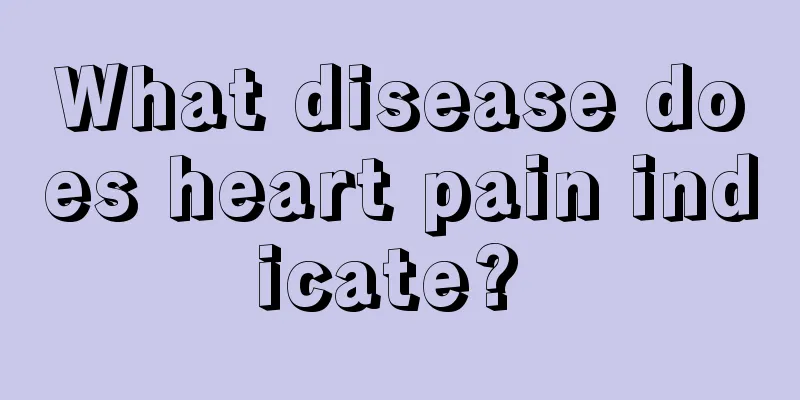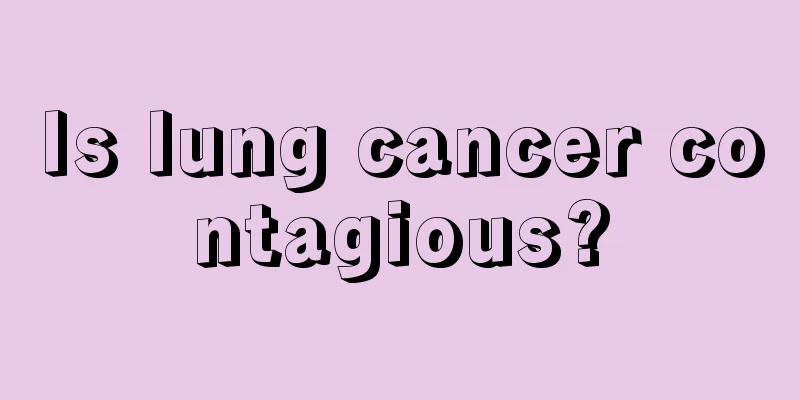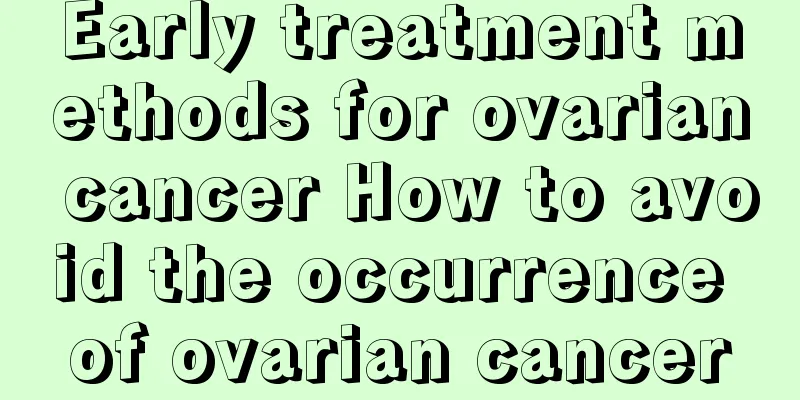What disease does heart pain indicate?

|
The heart is one of the most important organs in the human body and is related to human health. People usually worry when they have heart pain, but they don’t understand what the symptoms are like, so they can’t assist doctors in making scientific judgments and then treating them. Heart pain includes chest wall pain, chest pain, angina pectoris, and burning pain, and the severity of the condition increases in sequence. Patients should be informed for better treatment. 1. Chest wall pain is also called musculoskeletal pain The pain is concentrated in one spot and the patient can point it out clearly. The pain does not last long, usually only one or two seconds each time, and there is a chance of recurrence. The patient experiences stabbing or even severe pain in the chest when taking a deep breath, coughing, sneezing or turning around. The pain may be more severe than chest pain caused by other diseases, but most cases improve within a few days to two or three weeks. Any age can get it. Cause: The patient sprains and inflames the cartilage between the ribs, namely the costal cartilage, which is one of the more common chest wall pain diseases. Inflammation caused by viruses such as influenza, the flu itself can also cause bone pain all over the body. Broken ribs are less common but are also the most painful. The inflamed area will heal on its own without medication, but your doctor may prescribe painkillers and anti-inflammatory drugs. If your ribs are broken you can only wait for the wound to heal on its own. There is no need to take antibiotics as they have no effect on viruses. 2. Anxiety causes chest pain Patients claim that the pain lasts for hours, days, years, or even more than a decade. The pain may occur anywhere in the chest, and patients usually feel a "cloudy" or "stuffy" feeling. The patient begins to feel chest discomfort when he is at rest, such as sitting, lying down, or not working, but not when working or exercising. As soon as the patient sits down to see the doctor, he quickly lists out various "symptoms": dizziness, sweating, nausea, shortness of breath, fear of heat, fear of cold, numbness of hands, feet or lips, and he really wants the doctor to "cure" his illness quickly. The cause of the disease is excessive tension. Treatment focused on addressing the mental state, with detailed explanation that the patient's chest pain was not heart related. Gao Deqian said that usually by this point, the patient feels much more at ease. "We also need to talk to them patiently and guide them on how to easily cope with stress. In serious cases, they need to seek help from a psychiatrist or clinical psychologist." Angina pectoris caused by coronary heart disease The most serious condition is the opposite of chest pain caused by anxiety. That is, the pain only occurs when walking, exercising, chasing buses, climbing stairs, etc.; the pain stops when you stop. The pain lasts for five to ten minutes. There is a feeling of pressure in the chest, especially in the upper chest area, or a feeling of being "pressed" by the object. If the pain persists for fifteen to thirty minutes and you are sweating, it may be a myocardial infarction and you must go to the emergency room immediately. Cause: Blockage of the coronary arteries that supply nutrients to the heart. Taking "Di Wan" to treat angina pectoris in patients with coronary heart disease can dilate blood vessels and relieve the condition. Or undergo angioplasty or heart bypass surgery to restore normal blood flow. 4. Gastroesophageal reflux disease Something comes up when you eat too much, lie down, or sleep. There is a "swelling" and burning sensation in the chest, and even a sour taste in the mouth. Sitting up improved the situation. The cause is that the "gate" (a group of sphincters) between the esophagus and the stomach relaxes, allowing stomach acid to rise. Treatment involves lifestyle changes, such as not eating too much. Take medicine to control stomach acid secretion. The characteristic of gallbladder inflammation is pain when eating a full meal. The area is concentrated between the lower chest and the stomach, with a feeling of "pushing" or "bloating". The pain lasts for hours. The cause of the disease is gallstones causing inflammation. Treatment requires surgery to remove the gallbladder. |
<<: How is heart failure treated?
>>: Five Elements Longevity and Heart Nourishing Porridge, Quick Treatment for Heart Disease
Recommend
Radiation therapy for laryngeal cancer
Radiotherapy is one of the important means of tre...
Is there any specific medicine for pituitary tumor
Pituitary tumors seriously endanger our health. N...
Blood test for ovarian cancer
Generally speaking, the most commonly used clinic...
What is skin cancer and what are its symptoms
Skin cancer is a malignant tumor caused by abnorm...
How long can you live with advanced gastric cancer
For advanced gastric cancer, if the patient recei...
This is how teenagers can prevent dry eyes
With the popularization of electronic products su...
The efficacy and function of glabridin
The name of glabridin sounds like the name of a m...
Can patients with lymphoma get pregnant?
It is best not to get pregnant, because pregnancy...
How to treat and relieve acne between eyebrows?
There are many factors that cause people to get a...
Side effects of roselle
Roselle is a medicinal herb that is more commonly...
What are the hazards of pesticides to human body
Pesticide is a drug used in agricultural producti...
Can red wine and garlic be eaten together
Red wine is a common drink in our lives. Authenti...
The hazards of bathing in a plastic tub
Plastic bathtubs are not suitable for bathing bec...
How long can you live with central jaw cancer
How long can a person with central jaw cancer liv...
Can putting garlic in the anus cure hemorrhoids?
There are all kinds of folk remedies in life. I h...









